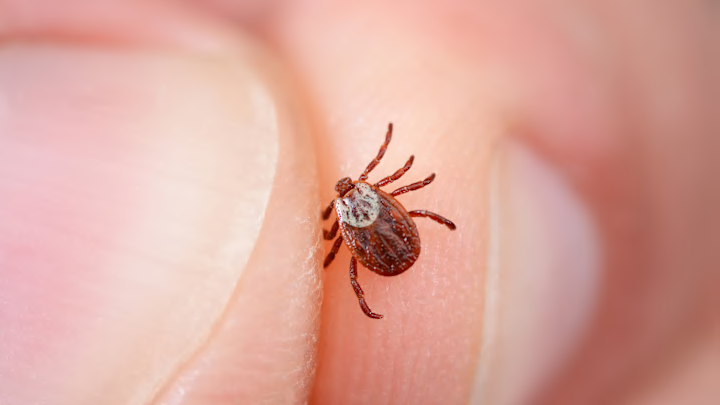For certain parts of the world, summer brings a lot of fun and sometimes considerable worry. Being outdoors carries the potential to encounter a tick, which can transmit bacteria causing debilitating Lyme disease, complete with its trademark bull-eye rash and persistent symptoms. If some new research holds true, it’s possible far more people have been exposed to the illness than previously believed.
A meta-analysis published in the journal BMJ Global Health examined data from 89 studies, including a total of 158,287 participants. According to their bloodwork, roughly 14.5 percent had been infected with Borrelia burgdorferi and related species, the bacteria that causes Lyme and its symptoms: muscle aches, nausea, and fatigue. The germs spread from the tick’s gut to its salivary glands as it feeds parasitically on a host.
The rate of those carrying antibodies, which indicate current or prior infection, was higher in Central Europe, where 20 percent were positive; the Caribbean had a positive rate of just 2 percent. In the United States, the rate was about 9 percent.
Averages were affected by areas where Lyme is endemic, which raises the risk of contracting the illness. It’s also important to note the work looked at 89 full-text studies out of a possible 4196 relevant papers, potentially limiting the current analysis. But Peter Krause, a senior research scientist at Yale who was not involved in the study, told NBC News that the results were in line with previous findings.
While rarely fatal, Lyme is perceived as an insidious illness that can linger in patients for months or years, particularly if they don’t seek treatment early on. If you’re active outdoors and in an area known to harbor ticks, it’s best to do a self-check afterward on your skin and crevices like armpits for the insect or to look out for a distinctive bull’s eye bite area. Prompt treatment with antibiotics improves the chances of a full recovery.
A Lyme vaccine was introduced in 1998 but pulled off the market after unconfirmed complaints of side effects surfaced. Pfizer is among the drug companies working on other types of vaccines.
[h/t Science Alert]
